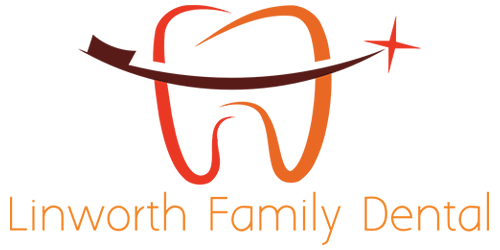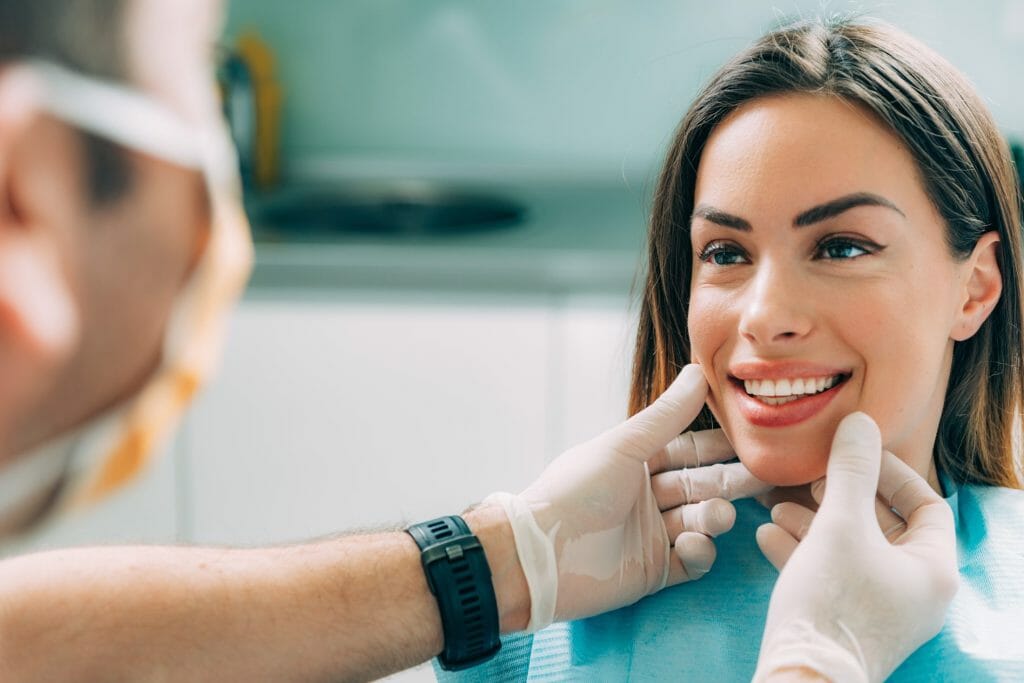When it comes to caring for your smile, the first thing that may pop into your mind is brushing and flossing daily. While these are indeed key elements to practicing good personal oral hygiene, there are other specific do’s and don’ts to practice as well.
The 5 Do’s of Personal Oral Hygiene
The following five do’s of personal oral hygiene are for everyone, including adults and children of all ages.
1. Do Brush Your Teeth for Two Minutes Each Time
Rushing through your tooth brushing routine in the mornings and evenings will not provide the best results when it comes to clearing away tartar, food, and sugar residue.
Make it a habit to brush for at least two minutes each time you pick up your toothbrush. You may need to set a fun timer for children to help them brush the allotted time or provide some other incentive.
For those two minutes, take your time, go slowly, and apply only gentle pressure. Divide the time evenly between your front teeth and back.
2. Do Replace Toothbrushes Often
The longer you use a toothbrush, the higher the risk of bacterial growth. This growth can affect your breath, leaving you with halitosis without you even realizing it. Also, toothbrushes tend to wear out or fray and need replacing to be effective.
Your dentist or dental hygienist might recommend you replace your toothbrush at least every few months. If it will help, mark your calendar or set a reminder on your phone to alert you it’s time for a change. Keep a fresh supply of new toothbrushes on hand so you won’t have an excuse to wait.
3. Do Floss Daily and Other Times When Needed
Get into the habit of flossing teeth at least one time per day. Many people only think of flossing when they feel or see something caught in their teeth.
Flossing helps remove plaque, keep gums healthy, and clear out crevices in the mouth that are hard to reach.
Always keep floss with you, including in your purse, office desk drawer, or car glove compartment, to ensure you have it when you need it.
4. Do Choose Sugarless Gum instead of Hard Candy
Hard candy can be damaging to teeth in more ways than one. If you accidentally bite down, you risk the chance of chipping, cracking, or breaking a tooth. Also, since hard candy sits in your mouth longer as it dissolves, you have longer exposure to the sugar inside your mouth, and this can contribute to cavity formation and tooth decay.
Chewing sugar-free gum helps fight bacteria within the mouth and also freshens your breath at the same time.
For those experiencing dry mouth, sugarless gum can also increase saliva production that can help clear out sugars, acids, and tartar,
Chew for 20 minutes or so following a meal and increase your chances of warding off the development of tooth decay. This helps by boosting saliva levels, which can flush out leftover food particles until you can brush again.
5. Do Regularly Schedule Dental Exams and Cleanings
Even if you dread going to the dentist, it’s crucial that you regularly schedule your dental exams and cleanings.
During the exams, your dentist can identify any issues, from newly forming cavities to signs you grind your teeth while sleeping and need a mouthpiece to prevent it.
For cleanings, your dental hygienist will get into spots you miss with brushing and flossing and help limit the amount of tartar and decay build-up.
The 5 Don’ts of Personal Oral Hygiene
In addition to the do’s, there are also some definite don’ts.
1. Don’t Ignore a Toothache or Other Mouth Pain
If you experience sudden or persistent tooth pain or other discomfort in the mouth, don’t ignore it. The cause could be something serious such as a broken tooth, infection, or a forming abscess. While taking an over-the-counter pain reliever or applying a topical gel can help temporarily, you’ll need to schedule an emergency appointment with your dentist to get behind the real reason for the pain and find the best treatment.
2. Don’t Brush Too Hard
While it may seem that brushing harder will get your teeth cleaner, it actually can be damaging. While tooth enamel is considered the hardest substance in the body, continual hard brushing can wear it down and also cause your gums to draw up or recede, exposing more of the tooth root.
To help, always use a soft-bristled toothbrush or switch to a powered toothbrush.
3. Don’t Reach for Acidic Foods or Beverages
While you already know that sugary treats are bad for your teeth, acidic foods and beverages are as well. These acidic foods and beverages can erode your teeth’s enamel over time, making them more sensitive and also darken their appearance due to exposure of the underlying dentin layer.
Acidic food and drinks, such as tomatoes and tomato products, citrus fruits and juices, and pickled foods, contain a lower pH level, and this may be what causes an acidic reaction on teeth.
4. Don’t Forget Your Mouthguard
If you participate in any sports that involve contact, talk with your dentist about wearing a mouthguard for protection against serious dental issues. Always wear your mouthguard each time.
5. Don’t Treat Swollen, Sore, or Bleeding Gums on Your Own
Your gums are essential parts of your oral health, and when they become swollen, sore, or bleeding, you need to schedule an exam with your dentist. You may have periodontal disease forming or advancing, depending on your particular circumstances.
Your dentist has different treatment options depending on your needs and can help your gums heal. If left to progress to the more serious form of gum disease, you are at higher risk for tooth loss.
Contact Linworth Family Dental to Learn More
Knowing the better ways to care for your oral health at home is essential to maintaining your smile, as well as for everyday eating and speaking. To learn more or to schedule an appointment for a dental exam or cleaning, contact our Linworth Family Dental office today.



Do dental hygiene, clean your gums and your whole mouth, not just your teeth. Don’t smoke. This may discolour your teeth and increase the probability of tooth decay.